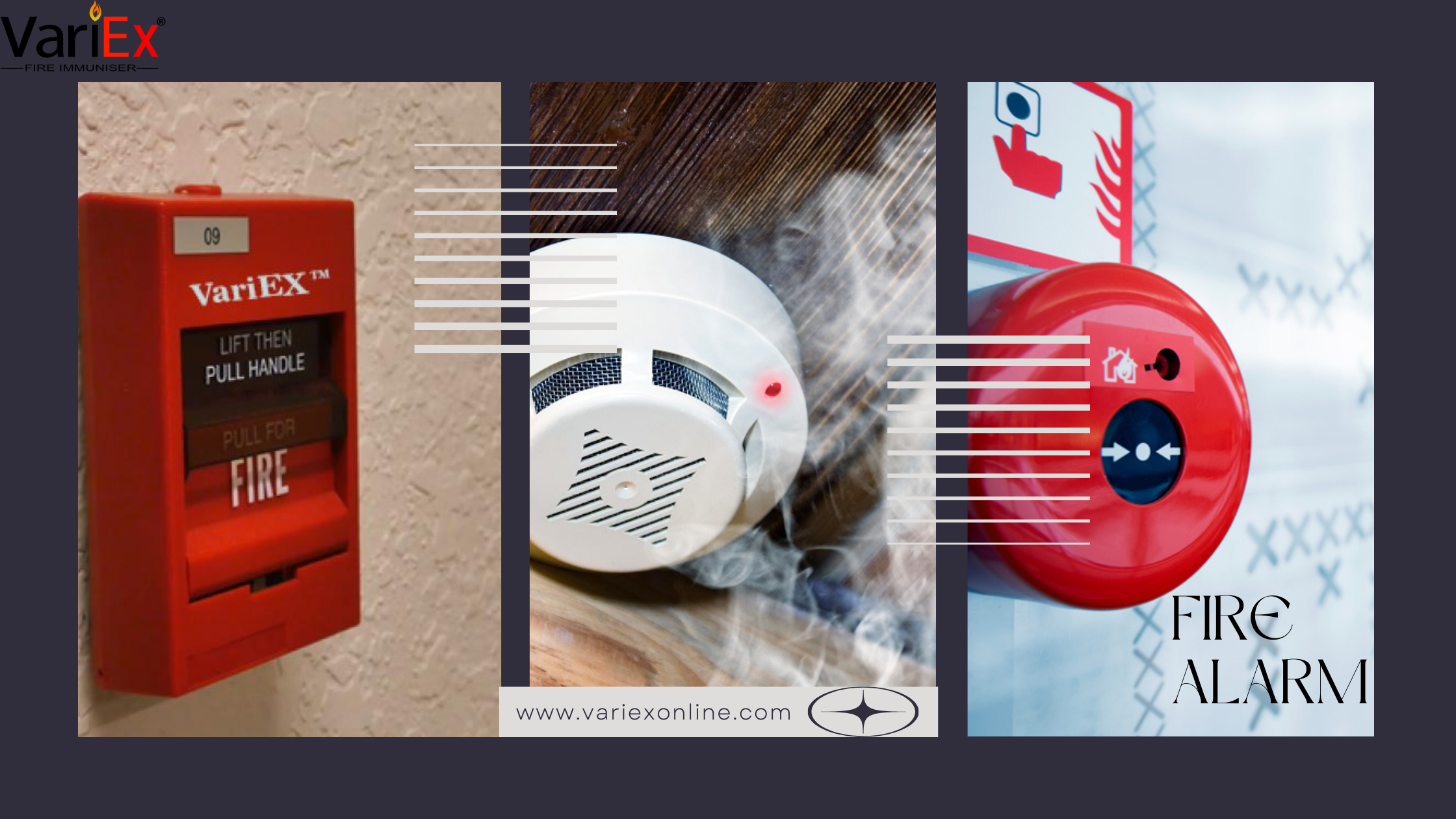![]()
Fire Immuniser
+91-7829629111
Email: info@variex.in
Varistor Technologies Pvt. Ltd.
Block-1, First Floor, Ardente Office One, Hoodi Circle, ITPL Main Road, Bengaluru, Karnataka 560048, IN
How To Stop Fire Alarm
How To Stop Fire Alarm
The shrill, piercing sound of a fire alarm can save lives in a real emergency, alerting occupants of a building to the presence of smoke or fire. However, when there is no actual danger present, a continually sounding fire alarm can be a source of significant stress and confusion. Potentially, this can create desensitization to the alarm, undermining its actual utility. Therefore, it is crucial to know how to stop a false fire alarm effectively and promptly.
Understanding the Types of Fire Alarms
First and foremost, it is imperative to understand the different types of fire alarms before attempting to stop one. Broadly speaking, fire alarms fall into two categories: single-station alarms and systems alarms.
Single-station fire alarms are typically found in homes. These stand-alone devices sound off their own alarm but are not linked with other alarms. Systems alarms, on the other hand, consist of multiple interconnected alarm devices. These are often used in commercial buildings, where a single alarm going off triggers the entire system's activation, alerting everyone in the building promptly.
How to Stop a Single-Station Fire Alarm
Stopping a single-station fire alarm typically involves addressing the reason for the false alarm and then resetting or silencing the device. Common causes for false alarms include dust in the sensors, changes in humidity or temperature, and low battery levels.
To stop a battery-powered alarm, first ensure there is no real fire hazard. Next, remove the batteries, then press and hold the 'test' button for about 15-20 seconds. This will discharge residual electricity and reset the alarm. After this, you can replace the batteries and reinstall the alarm.
Determine if necessary to clean the device if the alarm sounds off falsely regularly. Use a vacuum or compressed air to clean around the sensors delicely. Remember to handle the unit gently as the smoke detectors inside are fragile.
How to Stop a Systems Fire Alarm
If the fire alarm that's sounding is a multi-system alarm, silencing it may require technical knowledge or the involvement of qualified personnel, particularly if it is a sophisticated commercial alarm system.
Generally, alarm panels in buildings with such systems have a 'silence' or 'reset' button. If you have the necessary access, press that button after ensuring there is no fire threat. Note that you might need a code to perform this action. In some cases, the panel might allow you to silence individual zones, so you can stop the alarm in the affected area without disrupting the whole system.
However, it's crucial to be aware that silencing the system does not address the cause of the false alarm. If the issue that triggered the alarm isn't resolved, the alarm can again sound off. To prevent this, it's beneficial to engage a fire safety professional or the alarm system's maintenance company to investigate the root cause and provide a solution.
The Role of Regular Maintenance
Regular fire alarm maintenance is critical. Doing so can prevent frequent false alarms and ensure the system functions as intended in an emergency situation. This maintenance includes routine checks and cleaning of the detectors and replacement of batteries. Regular calibration checks will ensure that the system reacts as expected to smoke or fire conditions.
Emergency Plans and Fire Alarm Management
Having an effective emergency plan and fire alarm management policy in place is essential, especially for organizations. Fire drills can familiarize occupants with the sound of the alarm, the gender behavior, and how to react appropriately.
Ensure that all building occupants are informed about the purpose of fire alarms, how they work, and what to do when they sound, including false alarms. Proper training and communication can greatly minimize confusion and unnecessary panic during false alarms or actual emergencies.
Conclusion
Understanding how to stop a fire alarm is an important skill, particularly if a false alarm occurs. Besides causing potential emotional distress and disturbance, frequent false alarms might contribute to desensitization, risking an inadequate response in the event of a real fire. Therefore, it is crucial to know how to effectively and safely silence a fire alarm.
Remember, the priority is always to ensure there is no immediate threat before attempting to silence the alarm. Seeking professional assistance for sophisticated systems or when the false alarms persist is recommended. Lastly, regular maintenance and creating a comprehensive emergency plan can help preempt and efficiently handle false fire alarms.
Explore our products Range
Final Say
At VariEx.in and VariexOnline.com, we specialize in supplying and installing top-quality fire fighting systems and equipment. From fire extinguishers to advanced suppression systems, we offer comprehensive solutions tailored to your needs. Our experienced team ensures precise installation and maintenance for optimal safety.
Trust VariEx for reliable fire protection. Contact us online or call 7829629111 to learn more.
















